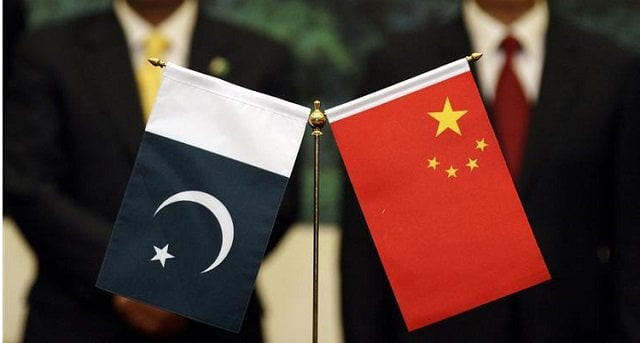Pakistan’s to-do list before PM’s visit to China
Islamabad will have to fast-track CPEC’s 2nd phase, redefine security framework

The Prime Minister of Pakistan, Shehbaz Sharif, is planning to visit China, his first state visit to the country since assuming office. The visit holds great significance due to three reasons. First, the visit is taking place just after the conclusion of the all-important 20th National Congress of the Communist Party of China. Second, it comes in the wake of President Biden’s statement on the nuclear assets of Pakistan. Third, the visit comes at a time where regional and global dynamics are shifting rapidly. Thus, it is anticipated that both countries will seek ways to enhance bilateral relations, according to the needs of the contemporary situation.
It is hoped that in the leadership of President Xi Jinping, a true friend of Pakistan, the relationship will be further strengthened. President Xi coined the term “iron brother” during his last visit to Pakistan. Most recently in Uzbekistan, President Xi declared that, irrespective of the situation, China will always stand by Pakistan. This statement reflects the strong ties that bind both countries together.
Although the agenda of the visit is wide-ranging (security, technology, RMB account, rescheduling of loans), CPEC shall remain the focal point of discussion. Thus, it is advised that the PM task his team to devise a comprehensive framework to accelerate work on CPEC and discuss this further with the Chinese leadership. The framework must revolve around the needs of the second phase of CPEC, including addressing concerns about security and ensuring a conducive business environment for CPEC-related projects.
There is a need to understand that the dynamics and requirements of the second phase of CPEC are entirely different from the first one. The first phase was designed to take care of the immediate and urgent needs of Pakistan in the fields of infrastructure and energy. Cooperation was forged through a government-to-government arrangement. This helped fast-track the implementation of CPEC projects.
In contrast, the second phase is designed to cater to the long term needs of Pakistan. The major areas of cooperation in this regard are in industry, agriculture and technology. In the second phase, the private sector will take the lead and help implement projects through business-to-business cooperation.
The framework should concentrate on improving CPEC security arrangements. There is no doubt that security institutions of the state played a vital role in securing investment during the first phase of CPEC. Now, Pakistan is reaping the benefits in the form of enhanced electricity capacity, better infrastructure and greater employment opportunities.
However, the security needs of the second phase are different from the first one, as it will be led by the private sector. Moreover, in the second phase, the workforce and investment will be spread all across the country. Hence, there is a need to re-examine the security framework and try to tune it according to the new needs.
Moreover, the opponents of CPEC have deployed instruments of fifth-generation warfare to sabotage the investment. The withdrawal of US and NATO forces from Afghanistan has further complicated the situation.
Crucially, the business environment of Pakistan is not very conducive for investment. It is complicated and involves multiple actors. Despite improvement in the “Ease of Doing Business” ranking, foreign investors continue to face hurdles and obstacles. The government’s rhetoric of facilitating the business community has not translated into concrete action. For example, the granting of an electricity connection takes 113 days, a construction permit 125 days and 105 days are required for property registration. In reality, however, it takes much longer than this.
Furthermore, there are 35 departments or agencies involved in the taxation system. Lack of harmonisation of tax policies of provinces is one of the biggest bottlenecks to attracting foreign direct investment. Another problem is inconsistency in the taxation policy which dilutes the trust of the business community. Corruption also remains a major concern. In a nutshell, inefficiency within the governance infrastructure of Pakistan is a major barrier to creating an enabling environment for the business community.
In this context, if Pakistan wants to make this visit successful, work on two areas is required. First, Pakistan will have to devise a system, which can facilitate fast track implementation of the second phase of CPEC. One option can be to create a centralised body to steer the cooperation. The body must have the powers of decision making, policy formulation and implementation. The work of the body must be immune to external influence.
Unfortunately, the government has abolished the CPEC Authority, which was serving in this capacity. The government must now delegate this responsibility to one of the federal ministries like the Ministry of Planning, Development and Special Initiatives or the Board of Investment. However, the work of the body must be checked through a stringent mechanism of monitoring and evaluation. For that purpose, a high-profile M&E committee should be constituted, composed of heads of five major political parties, services chiefs, chief justice, headed by the prime minister of Pakistan. The composition of the committee has been proposed keeping in view the diversity of the CPEC programs. The M&E committee must meet twice a year to review progress of the CPEC programs, the performance of the central body and make the required decisions for improvement.
The government will also have to redefine the security framework. There is a need to enhance the role of the police department for the second phase of CPEC. No other institution in the country has a ground level security infrastructure like the police.
The writer is a political economist and a visiting research fellow at Hebei University, China
Published in The Express Tribune, October 24th, 2022.
Like Business on Facebook, follow @TribuneBiz on Twitter to stay informed and join in the conversation.


















COMMENTS
Comments are moderated and generally will be posted if they are on-topic and not abusive.
For more information, please see our Comments FAQ